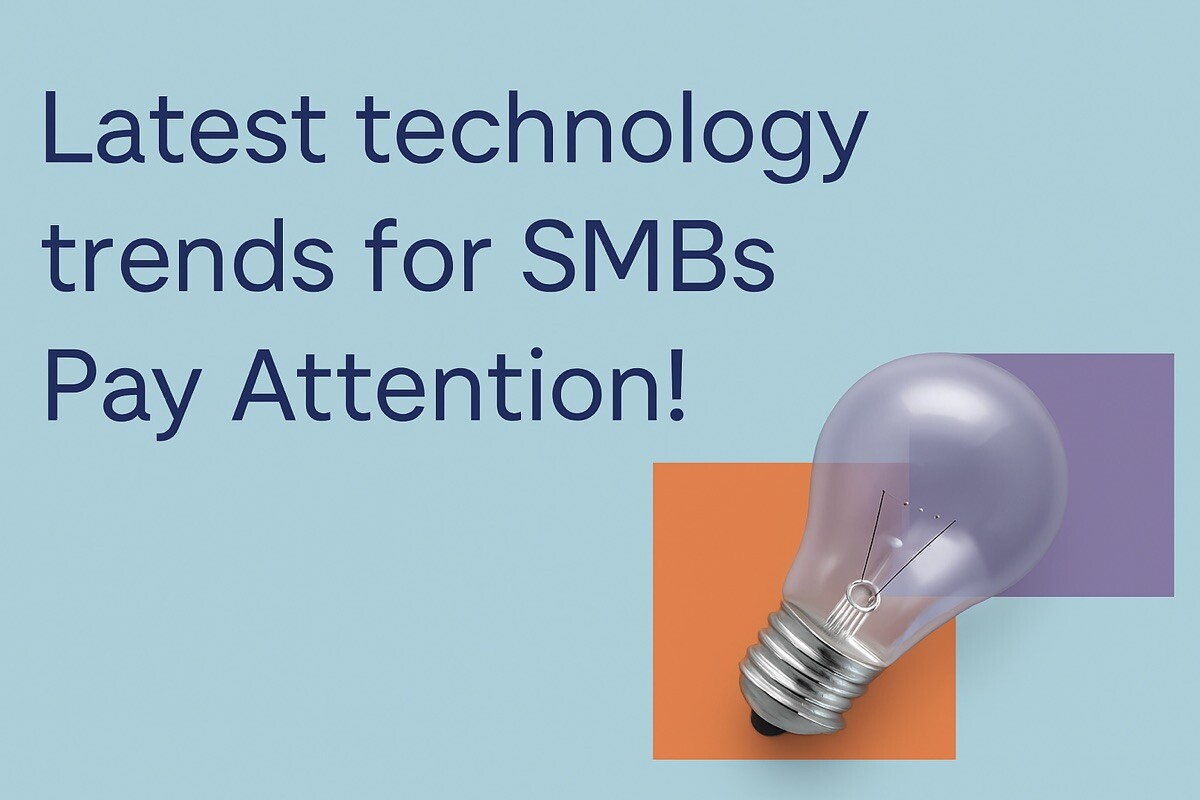
Latest technology trends for SMBs: Pay Attention!
I have personally observed how SMBs fall behind in keeping pace with the breakneck speed at which technology is advancing. Some get in at the beginning and enjoy the spoils, while others trail behind and get left behind. The key? Knowing which trends matter and how best to use them.
Here are the latest technology trends revolutionizing SMBs for the best, streamlining operations, enhancing security, and driving profitability.
Your Hidden Productivity Secret
I remember when automation was something only big companies could indulge in. Nowadays, it is ubiquitous, including in smaller companies. AI-powered chatbots, automated customer support tools, and smart inventory control systems have changed the landscape.
I assisted a small e-tailer a few years back that was grappling with customer queries. They installed an AI-based chatbot, and instantly, they were handling 70% of the questions automatically without having to lift a finger. The customers were more satisfied, while the staff could concentrate on high-value tasks.
AI tools to be considered:
- Customer support chatbots like Drift and Intercom
- Automating repetitive tasks with Zapier
- AI-driven analytics platforms including Looker for data-driven decision-making
How to Grow Without Overspending
If there is anything I always recommend to the owners of small businesses, it is to transition operations to the cloud. I have seen SMBs which were working with old hardware revolutionize their operations just by adopting cloud-based technology.
My colleague was a marketing consultant who had trouble collaborating on projects and sharing files. Switching to Google Workspace and Microsoft OneDrive transformed the way his team worked—no missing files, no never-ending email chains.
Cloud computing offers:
- Lower IT expenses
- Enhanced data security
- Remote access from anywhere
Cloud services like AWS, Google Cloud, and Microsoft Azure offer tailored solutions for small enterprises, making it possible to access cutting-edge technology without a colossal budget.
The SMBs Unifying Defensive Line
Cyberattacks are not only an issue for large brands. I have witnessed small businesses lose thousands of dollars due to poor security. A local café I dealt with had their payment system hacked, and that led to a sharp decline in customer confidence.
Key cybersecurity practices each SMB should have:
- Multi-factor authentication (MFA)
- Cloud data security
- Regular security audits
Even the smallest business can be ruined by a cyberattack. The good news? It doesn’t take a computer genius to protect your data with the right technology.
Winning Customers Through Engagement
Customers today more than anything else believe in online word-of-mouth as well as engagement levels. Without comments, likes, or shares, a business can be lacking in credibility. That is something I emphasize in online campaigns—perceptions are everything.
Accumulating YouTube likes to build trust is a great plan. Showing engagement with your content causes future consumers to take your brand seriously.
Most smaller brands invest in social proof tactics to drive online visibility. I myself have witnessed how a business went from being unable to generate any engagement to looking more credible by increasing the visibility of their content.
Contactless Payment & Mobile Commerce: The New Normal
I recall when cash was king and card payments were the epitome of sophistication. Now, if a company doesn’t provide mobile payments, it will be losing its customers.
Because of contactless card readers, Google Pay, and Apple Pay, SMBs now transact conveniently and efficiently. A mobile POS system that a friend who has a boutique received enabled a 30% increase in impulse purchases. It all boils down to convenience.
Investment in mobile-enabled payment technology is no longer an option—it is a necessity.
Hybrid Workspaces and Smart Workspaces
The days are over when all the staff had to be in the office between 9 and 5. Hybrid and remote working arrangements are here to stay now. My former student transformed his little design business into a hybrid structure and saw productivity soar. How? The right tools.
Best tools for hybrid work:
-
- Slack vs Microsoft Teams for communication
- Notion and Trello for task management
- Easy video calls with Google Meet and Zoom
SMBs are able to hire the best candidates regardless of the physical location by embracing hybrid work approaches.
FAQs
What’s the best AI tool for small businesses?
It depends on the need. If customer service is a priority, chatbots like Drift or Intercom are great. If automation is key, Zapier is a solid choice.
Is cybersecurity really necessary for a small business?
Absolutely. Hackers often target small businesses because they assume security is weak. Basic protection like MFA and encrypted storage can prevent major losses.
How can social proof help a business grow?
When potential customers see engagement (likes, shares, comments), they’re more likely to trust your brand. Investing in social proof strategies can make a business appear more credible.

